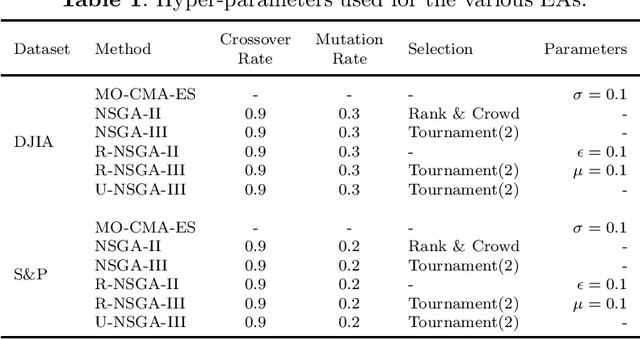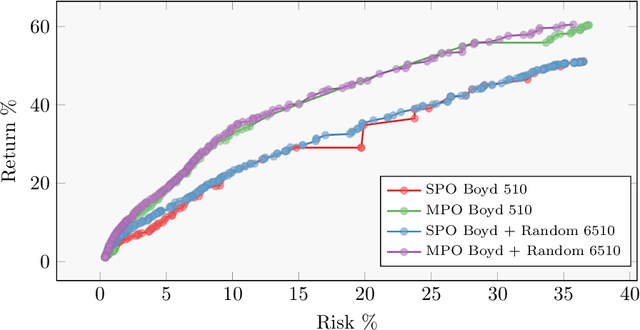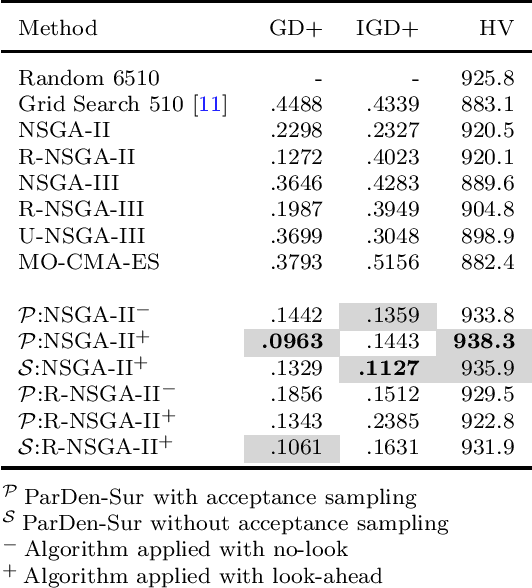Matthew Woolway
Exploring the effectiveness of surrogate-assisted evolutionary algorithms on the batch processing problem
Oct 31, 2022Abstract:Real-world optimisation problems typically have objective functions which cannot be expressed analytically. These optimisation problems are evaluated through expensive physical experiments or simulations. Cheap approximations of the objective function can reduce the computational requirements for solving these expensive optimisation problems. These cheap approximations may be machine learning or statistical models and are known as surrogate models. This paper introduces a simulation of a well-known batch processing problem in the literature. Evolutionary algorithms such as Genetic Algorithm (GA), Differential Evolution (DE) are used to find the optimal schedule for the simulation. We then compare the quality of solutions obtained by the surrogate-assisted versions of the algorithms against the baseline algorithms. Surrogate-assistance is achieved through Probablistic Surrogate-Assisted Framework (PSAF). The results highlight the potential for improving baseline evolutionary algorithms through surrogates. For different time horizons, the solutions are evaluated with respect to several quality indicators. It is shown that the PSAF assisted GA (PSAF-GA) and PSAF-assisted DE (PSAF-DE) provided improvement in some time horizons. In others, they either maintained the solutions or showed some deterioration. The results also highlight the need to tune the hyper-parameters used by the surrogate-assisted framework, as the surrogate, in some instances, shows some deterioration over the baseline algorithm.
Pareto Driven Surrogate (ParDen-Sur) Assisted Optimisation of Multi-period Portfolio Backtest Simulations
Sep 13, 2022



Abstract:Portfolio management is a multi-period multi-objective optimisation problem subject to a wide range of constraints. However, in practice, portfolio management is treated as a single-period problem partly due to the computationally burdensome hyper-parameter search procedure needed to construct a multi-period Pareto frontier. This study presents the \gls{ParDen-Sur} modelling framework to efficiently perform the required hyper-parameter search. \gls{ParDen-Sur} extends previous surrogate frameworks by including a reservoir sampling-based look-ahead mechanism for offspring generation in \glspl{EA} alongside the traditional acceptance sampling scheme. We evaluate this framework against, and in conjunction with, several seminal \gls{MO} \glspl{EA} on two datasets for both the single- and multi-period use cases. Our results show that \gls{ParDen-Sur} can speed up the exploration for optimal hyper-parameters by almost $2\times$ with a statistically significant improvement of the Pareto frontiers, across multiple \glspl{EA}, for both datasets and use cases.
 Add to Chrome
Add to Chrome Add to Firefox
Add to Firefox Add to Edge
Add to Edge